|
Preparing for Hurricane Irma has given me a fresh perspective on what matters most. With each alert, evacuation notice, and email telling me that work would be canceled for “x” amount of days, my panic level rose. The uncertainty of the storm’s path falling on my city and then my family’s city kept us all in constant contact reviewing our emergency plans. Social media messages from friend to friend with notes of encouragement and “hurricane hacks” brought us all closer together around the state. Thankfully, I am located in north central Florida, where Hurricane Irma caused less damage than its two landfalls near Naples and The Keys. Prepping my house and selecting the most important items to protect for survival is very humbling. While packing, I thought of my fellow Floridians who evacuated south Florida not knowing if they will have a home to come back to. I thought of those in the Caribbean who received the brunt of Hurricane Irma’s force. I thought of the victims in Texas who battled Hurricane Harvey and continue to cope with its aftermath. These natural disasters remind us of the sanctity of life, what is most important. With the hurricane covering the entire state of Florida, I thought of how small I am—especially in comparison to what God can accomplish. During times of natural disasters, reliance and trust in him increases. One of my neighbors reminded me of the story in Matthew 8:23-27, when Jesus calmed the storm at sea. Jesus told his disciples, “‘Why are you terrified, O you of little faith?’ Then he got up, rebuked the winds and the sea, and there was great calm.” My neighbor told me, “He did it once, and he can do it again!” Her faith was inspiring to me and instantly calmed my nerves. When someone asks, “Where is God in this storm? Why did he create this?” my answer is that God is in those who help others and respond with service and compassion during times of trial and suffering. 1 Corinthians 12 tells us that we are Christ’s body and form individual parts of it. We are the hands and feet of Christ in the world. We may not see the ways God is helping at first because these ways may not necessarily be our ways. I truly believe acts of kindness, such as neighbors checking in on one another and helping one another prepare their homes and families, provide hope during times of fear or suffering. The selfless love of fellow citizens encourages each of us to do what we can for others, in this case, those affected by these recent storms. There are students, faculty, and staff from the University of Florida, where I work, who are ready to jump into action after the storm passes to help others by donating food and clothing, assisting displaced pets, and more. We grieve with those who hurt and find ways to help alleviate their suffering. Rather than filling my thoughts with why this storm has happened, I instead thank God for the blessings he has provided my family and me. Ultimately, God does not cause the storm (or evil), he simply permits the natural way of the world, just as he does with the free will of human beings. Romans 8:28 tells us that God is always working for our good or working to bring about good and turn even a bad situation into a blessing. I am comforted by this thought. During this time of hardship for many in our country, I pray that we may come together and serve one another in order to bring good out of suffering. May we continue to be the hands and feet of Christ to our brothers and sisters.
0 Comments
“Good morning and welcome to St. Michael Catholic church. Before Mass begins, we invite you to take a moment to greet those around you.”
I was on vacation at the time I heard these words, and thus totally unfamiliar with the parish until I had searched for local Catholic churches. There wasn’t much choice compared to my options in a densely populated city, but I knew Mass was Mass—the same and just as important in the rural diocese I was visiting as it is in the Archdiocese of Washington (and the rest of the Universal Church). I was excited to experience another faith community as a visitor. After the cantor made the welcome announcement, the parishioners around me turned and exchanged greetings with their neighbors. While there were a number of familiar faces for them, mine was new. Their eyes lit up when they saw me. I appreciated the parishioner’s hospitality efforts, beginning with the first handshake and smile. As Mass began, I could not help but pick up on the small differences in the celebration of the liturgy: the church was smaller and rounder, there was a piano instead of an organ, the servers were past middle-age, and the priest liked to stroll up and down the aisle during his homily. While it was not exactly what I was used to, the actual worship of God and the spiritual nourishment of the faithful was no less authentic or beneficial. The Word of God was proclaimed in the readings and we received the real Body, Blood, Soul, and Divinity of our Lord Jesus Christ in the Eucharist. We sang hymns, exchanged a sign of peace, and participated in the usual liturgical responses, movements, and postures at the appropriate times. These experiences may very well be shared by anyone taking a vacation this summer or otherwise visiting another parish. The Mass transcends one’s location or liturgical preferences. It is ultimately the gathering and lifting of prayers of praise, petition, repentance, and thanksgiving to God Who blesses us with His grace and True Presence. In Her wisdom, the Church has laid down guidelines for the celebration of the liturgy that must be adhered to in order to be valid. Without them, the Mass would lose its focus on divine worship and partaking in the Sacred Mysteries. While different parishes and cultures may imbue a different spiritual character in the celebration of the sacraments, the Substance (God) remains the same to unite all the faithful, whoever and wherever they may be. This universality reflects that of the Church, instituted to proclaim Christ to all, especially those outside of His Body. My experience of welcome at this new church during my vacation reflected that very evangelical mission! One does not have to go far to invite another to share in the Sacred Mysteries—all are invited to enter and re-enter the liturgy, and to do so more deeply than before in order to draw more meaning and grace along one’s spiritual journey. After that morning’s Mass, the church hosted a hospitality breakfast during which I was continually greeted by other parishioners who expressed amazement that I found my way to join them in the Eucharist at such an early hour—and on a weekday! To some, it was refreshing to see not only a new face, but a young one. They were as happy to greet me and share their experiences as I was to be there and form new ones. Before leaving that church to continue on with the day, the members of the faithful drew strength from their reception of Jesus in the Eucharist and from each other in order to sustain them through the burdens and challenges of their lives. In welcoming newcomers to the Catholic Church, let us strive to extend the same heartfelt message as our Lord to the wearied disciples after His Passion: “Peace be with you!” Doing so will not only help others benefit from the graces and support offered at your home parish, but will also strengthen and enrich the life of the local church as it endeavors to minister to the world spreading the Gospel message. Question for Reflection: How does visiting different parishes deepen your understanding of the Mass? Have you ever benefitted from attending Mass in a different location or within a different culture? Mercy. It seems simple enough. If I condescend to offer you understanding and even compassion, then I am being merciful, right? That is pity, not mercy. Mercy provides us with the opportunity to offer love of God through love of neighbor. We also experience mercy from God who calls us to move beyond self and sin and live lives rooted deeply in the experience of the love of God which calls us to always more as St. Vincent Pallotti would say. Growing in the virtue of mercy takes time and experience. We grow in mercy through not only our experience of mercy from God, but also our living it through the Works of Mercy. The Spiritual and Corporal Works of Mercy give us many opportunities to live mercy in our daily lives. Over the course of this Jubilee of Mercy, I had the opportunity to pass as a pilgrim through the holy doors at various churches, including the four Papal Basilicas in Vatican City and Rome and the National Holy Door at the Basilica of the National Shrine of the Immaculate Conception in Washington, D.C. Passing through a door does not make us more merciful, even if we have done all that is required for a plenary indulgence. The door is simply symbolic of crossing the threshold into a way of living as a pilgrim in this world – mercy lived. Mercy lived does not permit others to be taken for granted, marginalized, or discriminated against from conception to natural death. Mercy lived moves us into places, spaces, and moments where others may be timid, fearful, or disdainful to tread or do so only out of condescending pity rather than moved by love of God and love of neighbor. Mercy lived witnesses Christ in everyday life in ways large and small, wherever and with whomever we find ourselves. No one is exempt from the Mercy of God as Pope Francis just taught again this past Saturday: “Dear Brothers and Sisters: In this, the last of our special Saturday Audiences for the Holy Year of Mercy, I would like to stress the importance of inclusion. God’s mercy, which excludes no one, challenges us to be merciful and open to the needs of others, especially the poor and all those who are weary and burdened. We, who have experienced that love and mercy, have a part to play in his saving plan, which embraces all of history. In his mercy, God calls all men and women to become members of the body of Christ, which is the Church, and to work together, as one family, in building a world of justice, solidarity and peace. God reconciled mankind to himself by the sacrifice of his Son on the cross. He now sends us, his Church, to extend that merciful embrace to our brothers and sisters throughout the world. The arms of the great colonnade surrounding this Square symbolize that embrace. They remind us not only of the Church’s mission to the human family, but also of our own call to bear faithful witness to God’s inclusive love through the mercy, love and forgiveness we show to others.” This is Mercy Lived!
Last week a friend and I were watching football together and we started talking about how unprecedented of a year 2016 has been. At that moment it seemed like anything was possible—the Cubs were headed to the World Series, a feat that last happened in 1945! My friend even joked that maybe the Bears would win the Super Bowl! Well the Cubs have won the World Series, first time since 1908, and the Bears still look dubious for the Super Bowl. There are countless examples of how different this year has been, but none more so than our current presidential election. This long and winding election will finally be over and our Facebook newsfeeds will return to their usual mix of cat photos and recipe videos. During this election cycle I have often been asked by a lot of my friends what a Catholic is supposed to do. Some people have made up their minds completely independent of the magisterium of the Church, while others have decided to completely remove themselves in the process by not voting.
As faithful Catholics, participating in our electoral system requires a formation of conscience. It demands that one know and understand the different issues and the Church's teachings of various issues. It is not something that can be broken down into a simple check box format, but demands an understanding of the teachings of the Church. In response to this situation, the bishops of the United States have written a pastoral letter, Forming Consciences for Faithful Citizenship outlining several key teachings that are important to today's political climate. We at the Catholic Apostolate Center have created a special portal dedicated to this document. I highly recommend visiting the page and exploring its various topics. Exploring these issues and positions is critical to making an informed decision. The document goes into detail regarding the very nature of Catholic involvement in our politics. This process includes a formation of oneself both as an apostle and a citizen. A few months ago, Bishop Robert W. McElroy, Bishop of San Diego, wrote about this formation. Saying "It is for this reason that the central foundation for an ethic of discipleship in voting for the Catholic community in the United States today lies not in the embrace of any one issue or set of issues but rather in a process of spiritual and moral conversion about the very nature of politics itself." The other common thing I hear from some people is that "so many people vote, mine can’t possibly matter." These individuals are choosing not to participate in their right to vote as a citizen of this country. Everyone has that right to not participate, but before making this decision there are things to consider. One should remember that the Church encourages our participation. Cardinal Donald Wuerl, Archbishop of Washington expanded on this further last week in a column in The Catholic Standard discussing Forming Consciences for Faithful Citizenship "Civic participation is not a simple task for faithful citizens It requires a willingness to listen to Catholic social teaching, and then conscientiously apply it to the political sphere. We must pray for guidance in our civic choices so as to uphold the dignity of all life and the common good. We must learn about the issues and where candidates stand. We must vote in recognition of the important contribution that every voice makes on Election Day, and we must remain engaged to build a civilization of justice, peace and caring for one another. Tonight, we should know the results of the election and a portion of the country will be disappointed. Whoever is elected will have the enormous task of unifying this country and moving forward. That task will not be an easy one, but is possible. One only needs to look at the example Pope Francis gave last week in Sweden. He traveled there to commemorate the 500th anniversary of the Protestant Reformation and spoke of the hope for reconciliation between Catholics and Lutherans: “We have the opportunity to mend a critical moment of our history by moving beyond the controversies and disagreements that have often prevented us from understanding one another.” Catholics in the United States are also called to similarly work hard to build bridges to our neighbors. I have no doubt that this country will unify but it will take understanding, prayer, and time. What do we imagine when we think of the Holy Spirit? Perhaps we envision tongues of fire, as the Apostles experienced in the Upper Room during Pentecost. Perhaps we think of a dove, as we read in the Baptism of Jesus at the Jordan River. Maybe we think of wind, a ghostly figure, or even a loud gathering of people speaking in tongues or falling to the ground. Many within the Catholic Church are unfamiliar with, afraid of, or simply unaware of the Holy Spirit and His role within our Church. This is perhaps because the Holy Spirit is the least “safe,” “personal,” or “containable” person of the Trinity. The Holy Spirit was not sent to earth in the form of a person who healed, preached, and died for our sins, as Jesus was. The Holy Spirit is not called “Abba, Father,” and was not the primary face of God in the Old Testament. Though the Holy Spirit has existed since the beginning, cited in Scripture at creation as the spirit of God hovering over the waters, and is referenced throughout the Old and New Testaments through Pentecost and beyond, many find it difficult to define, connect to, or have a relationship with the Holy Spirit. My own relationship with the Holy Spirit did not begin until my third year of college. Recent events in my life had left me profoundly grateful, so I began to spend five to ten minutes each morning simply giving thanks to God and invoking the Holy Spirit. It started with thanksgiving for the more obvious things: a roof over my head, food on the table, family. As I continued, I grew in my perception to see the little moments of grace in each day. I would thank God for a chance conversation with a friend, the insightful part of a particular lecture, or the flower that had blossomed in my neighbor’s yard. I invited the Holy Spirit into my life, and spent the morning in thanksgiving and praise rather than petition. As a result, I started experiencing a profound, unshakeable joy. It was as though I was seeing the world with new eyes—the eyes of gratitude and grace, the eyes of God. I was becoming more Christ-like without really trying, because my heart was filled with the love of God, the presence of the Spirit. The Holy Spirit has been called the manifestation of the love between the Father and the Son. As the third person of the Trinity, the Holy Spirit reveals the Father to humanity and enables us to become like Christ. It was the Holy Spirit who was beginning to transform me into a disciple and instilling joy in my heart. We often miss the work of the Holy Spirit because the Spirit “does not speak of Himself…[but] makes us hear the Father's Word”—which is Christ (CCC 687). As Christ himself said to the Apostles, the Spirit “will not speak on his own, but he will speak what he hears” (John 16:13). The Holy Spirit is also consubstantial with the Father and the Son—meaning that the three persons of the Trinity are inseparable while being distinct in their roles. The role of the Holy Spirit is the building up of the Church and her people. The Spirit of Truth guides us to truth (cf John 16:13). He is the person of the Trinity sent by Christ to be most present in the world today—our Advocate. Because of the work of the Spirit, Christ can say, “I am with you, even to the end of time” (Mt. 28:20). How can we come to know the Holy Spirit? In prayer, the liturgy, the sacraments, Scripture, Church teaching, the witness of holy men and women, and in many other ways (cf CCC 688). As we celebrate Pentecost, I invite you to start spending a few minutes each day with the Holy Spirit. Invite the Spirit into your Scripture reading, asking Him to reveal His wisdom and help you apply it to your own life. Call upon the Spirit in prayer and thanksgiving throughout your day. Learn more about the sacraments, which reveal the inner life of the Trinity, and participate more deeply in them. Read the lives of the saints, men and women who are examples of the holiness made possible by the Spirit. May these practices lead to a Pentecost and renewal of the Spirit in our own lives. Together, let us say, “Veni Sancte Spiritus, Come Holy Spirit!” (CCC 2670-72). May His fire purify our hearts, leaving only the love of God, so that we may in turn set the world on fire.
A couple weeks ago, I placed a breakfast order at my neighborhood Dunkin’ Donuts drive-thru. When I went to pay and pick up my to-go bag at the window, the cashier said it was already paid for. I must have looked bewildered as the cashier proceeded to explain that a woman in the store had already paid for my meal. I was overcome with such gratitude and happiness. I immediately offered up my thanks to God and prayed for the woman and her intentions. The rest of my day was so bright and joyful because I kept thinking about the woman who showed such generosity to me. Later, I could only think of how to repay the woman’s kindness by doing something generous for another person, an act known as “paying it forward.” Since this event, I’ve been to Dunkin’ Donuts twice and no one has been behind me in the drive-thru line for me to be able to pay it forward (or backward, rather). Each day, I feel as though I have a debt that is yet to be repaid. I was sharing this feeling with a friend when she said how the feeling is similar to when we finally understand Jesus’ immense love for us in his crucifixion. Our debt to God can never be repaid. Psalm 116:12 says, “How can I repay the Lord for all the great good done for me?” We have the answer in verse 13: “I will raise the cup of salvation and call on the name of the Lord.” There is nothing we can give to God that he doesn’t already have. However, we can give our thanks to him for the graces he has bestowed upon us and ask for more grace so as to show him our desperate need for his infinite love and resources. The grace God gives us wouldn’t be grace if we were able to give it back. In 1 Corinthians 15:10, Paul says, “But by the grace of God I am what I am, and his grace to me has not been ineffective. Indeed, I have toiled harder than all of them; not I, however, but the grace of God [that is] with me.” Our faith in God is what compels us to act out of goodness for others. These acts of kindness are our ways of being proactive in responding to God’s generosity and love for us. In the parable of the talents (Matthew 25:14-30), Jesus tells the story of a master who entrusted his possessions to three servants. The servants who were given five talents and two talents went off to make more talents. The servant who was given one talent buried it. The master rebukes the servant who buried his talent because he hid it from others. The master says, “For to everyone who has, more will be given and he will grow rich, but from the one who has not, even what he has will be taken away” (Matthew 25:29). This parable reminds me that God has entrusted us with gifts, be they monetary, skill-related, or time-related. We are to share these gifts with others, and in return for being good stewards of God’s gifts, he will provide us with more gifts. A friend of mine mentioned to me that even as she gave a little of the earnings she made from her first paycheck to God in the form of tithing and good deeds to others, she noticed that she always had enough for essential needs. Over the course of time after monthly charity budgeting, she earned a raise and could give more to charity while maintaining her needs. The idea of paying something forward to someone else is most powerful when we share with those whom we do not know or wouldn’t naturally help. We have a responsibility to show God’s love to our fellow human beings by loving them through service, random acts of kindness, sharing God’s word, and in our actions and words. We have learned the importance of this already through the Golden Rule: “Do to others whatever you would have them do to you” (Matthew 7:12). In the meantime, I’ll continue to look for opportunities to pay it forward. During this Year of Mercy, I’ve been pierced by this question: how merciful am I to myself? The question echoes within me because I realize how unmerciful I can be to myself sometimes. And the degree of mercy I extend to myself, whether I know it or not, invariably affects the mercy I give to others. That is a significant truth, yet how often I overlook that!
Jesus tells us to “Love your neighbor as yourself.” (Mt 22:39) It’s easy to take that verse at face value and think, “Just love your neighbor.” But the modifying phrase, “as yourself,” tells us we need to love ourselves in order to fully love our neighbor. We need to be merciful to ourselves if we are to be merciful to others. Our self-love seeps into our actions and affects our relationships in subtle and not so subtle ways. If I dislike and fail to embrace my quieter and more reflective nature, then it will be hard for me to fully embrace the same in another. How can I love another if I choose to hate that which is in me? And if I make a mistake and don’t let it go, then my bitterness can affect what I do for others. If I don’t practice even little acts of mercy towards myself, what will make me give such mercy towards another? God wants us to be kind to ourselves. He wants us to overcome those self-critical thoughts and stop holding grudges against ourselves. He yearns for us to forgive ourselves and to believe in the gifts he has given us. Whenever we struggle to love ourselves, God is always there to receive us in our wounds. He is the Father who wants us to see the goodness within ourselves and embrace it. 1 John 4:10-11, says “We love because he first loved us.” This is where the path of mercy and service begins! For us to love ourselves ever more fully so that we can love others ever more fully, we have to continually encounter Christ and abide in his intimate love. Then our hearts will be on fire because He reveals to us who we are and shows us how to love: “As the Father has loved me, so I have loved you” (Jn 15:9). Christ enlivens us with self-acceptance and self-worth so we can go out and give to others the mercy and love by which we have been loved. In this Year of Mercy, let us strive to be merciful to ourselves so that we can be merciful to all, asking Jesus: “Lord, help me to love myself as much as you love me.” For more resources on the Year of Mercy, please click here. 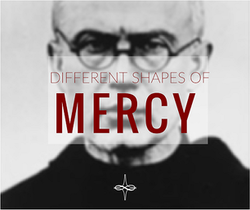 Pope John Paul II, in his homily at the Mass he celebrated at the site of the Brzezinka (Auschwitz II) Concentration Camp in 1979; called St. Maximilian Kolbe “the patron of our difficult century.” Although the dawn of a new century has since come, St. Maximilian remains a strong symbol of Christian charity today. Seventy-four years ago tomorrow, he offered up an ultimate act of charity while knowing it would cost him his own life to save another. While Maximilian Kolbe was a prisoner at Auschwitz, several men escaped from the camp. In an attempt to deter other prisoners from trying to escape, the officers chose ten men to starve to death. When one of the men chosen expressed his anguish because he had a wife and children, St. Maximilian willingly volunteered to take his place. After two weeks without food or water, St. Maximilian was the only one of the ten still alive. At that point, he was killed by a lethal injection. Although we cannot know for certain what happened while the ten men were held in the bunker, there are reports that St. Maximilian spent much of the two weeks leading the other nine in prayer to the Blessed Mother. Most of us will not be called to make the same sacrifice as St. Maximilian did for a stranger, but God calls each of us to works of charity and mercy. The Corporal and Spiritual Works of Mercy are simple ways to love God and to love our neighbor. This might mean sacrificing your Saturday afternoon to drive an elderly neighbor to her doctor’s appointment or to volunteer at a food pantry. Mercy might take the form of comforting a coworker or classmate (regardless of whether or not you are friends) when you notice them grieving. Mercy means not honking or cursing, but instead offering up a prayer when someone cuts you off in traffic. Mercy could mean not buying another sweater when you already have ten hanging in your closet and instead donating the money to a charity for the homeless. Every act of mercy requires some sacrifice--whether you are giving up time, money, or a bit of yourself--but there is no simpler way to tell God that you love Him. St. Maximilian Kolbe, pray for us! Jennifer Beckmann is an Administrative Secretary for the United States Conference of Catholic Bishops.
Pope John Paul II, in his homily at the Mass he celebrated at the site of the Brzezinka (Auschwitz II) Concentration Camp in 1979; called St. Maximilian Kolbe “the patron of our difficult century.” Although the dawn of a new century has since come, St. Maximilian remains a strong symbol of Christian charity today. Seventy-four years ago tomorrow, he offered up an ultimate act of charity while knowing it would cost him his own life to save another.
While Maximilian Kolbe was a prisoner at Auschwitz, several men escaped from the camp. In an attempt to deter other prisoners from trying to escape, the officers chose ten men to starve to death. When one of the men chosen expressed his anguish because he had a wife and children, St. Maximilian willingly volunteered to take his place. After two weeks without food or water, St. Maximilian was the only one of the ten still alive. At that point, he was killed by a lethal injection. Although we cannot know for certain what happened while the ten men were held in the bunker, there are reports that St. Maximilian spent much of the two weeks leading the other nine in prayer to the Blessed Mother. Most of us will not be called to make the same sacrifice as St. Maximilian did for a stranger, but God calls each of us to works of charity and mercy. The Corporal and Spiritual Works of Mercy are simple ways to love God and to love our neighbor. This might mean sacrificing your Saturday afternoon to drive an elderly neighbor to her doctor’s appointment or to volunteer at a food pantry. Mercy might take the form of comforting a coworker or classmate (regardless of whether or not you are friends) when you notice them grieving. Mercy means not honking or cursing, but instead offering up a prayer when someone cuts you off in traffic. Mercy could mean not buying another sweater when you already have ten hanging in your closet and instead donating the money to a charity for the homeless. Every act of mercy requires some sacrifice--whether you are giving up time, money, or a bit of yourself--but there is no simpler way to tell God that you love Him. St. Maximilian Kolbe, pray for us! Jennifer Beckmann is an Administrative Secretary for the United States Conference of Catholic Bishops. “God is offering us grace, let us be man enough to accept it!”
- Monsignor Vito Buonanno I heard this a couple weeks ago at a Knights of Columbus meeting and it has stuck with me ever since. Not only are these words empowering and driving us to seek God, but they also perfectly describe our Lenten journey. We are imperfect, we are lacking, we are human, but God still loves us. He is offering us the grace to seek Him, to journey toward him, to be with Him, let us accept this grace, take His hand, and walk with God! This is easier said than done. Last week we celebrated Ash Wednesday and many of us made Lenten promises to abstain from sweets, help out a neighbor, or pray a little bit more. And at the beginning of the Lenten season, many of us are most likely already struggling with our Lenten promise. But we cannot focus on those failures, rather we must focus on how to stand back up and continue walking toward Christ. We need to focus on converting ourselves to Christ. In his Ash Wednesday homily in 2014, Pope Francis said, “Once again Lent comes to make its prophetic appeal, to remind us that it is possible to create something new within ourselves and around us, simply because God is faithful, always faithful, for he cannot deny himself, he continues to be rich in goodness and mercy, and he is always ready to forgive and start afresh.” We have heard similar themes before in Baptism. In Baptism, we talk about beginning anew and starting afresh as we enter into the water, die with Christ, and are reborn in him. Our Lenten journey is a reminder of our Baptismal call to live out the Gospel and in doing so we convert others and ourselves to Christ. The Lenten journey is different for each and every one of us for we all convert ourselves to Christ in different ways. And yet at the center of every conversion has to be prayer. It is only through prayer that we can come to understand all that God is asking of us. It is only through a dialogue with Him that we can form ourselves in His image. It is only through prayer that we are able to examine ourselves, reconcile with Christ, and move forward walking with hope toward the light of salvation. Prayer is not always easy. Oftentimes I sit down to pray and am bombarded with thoughts about everything that I need to do that day, the things in my life that are worrying me, and the distracting sounds around me. Some people would say to find God in those distractions, to let Him speak to you through them, but that does not always work for me. When I am struggling to pray I turn to formed prayer, to writings of Archbishop Fulton Sheen, Pope Francis, or St. Thomas Aquinas. When I am struggling to pray I turn to Our Blessed Mother and pray the rosary. These things ground me in my faith and when I am finished I am ready to listen. This Lenten season lets us open our hearts to Christ so that He may guide us on this journey to Him. Jesus wants to love us, we just have to say yes! Nicholas Shields is a Young Professional in Washington, D.C. To learn more about Lenten prayer please check out our Lenten Resources! “Today we ask the Lord to become missionaries in the Church, apostles in the Church but in this spirit: a great magnanimity and also a great humility.” – Pope Francis
Many people throughout the world whether Catholic or not have been affected by the humility of Pope Francis. His witness calls us to more, a more generous spirit that is not tied to things or honors or what we desire, but is instead showing love of God and love of neighbor in what we do and in what we say. This witness is not meant to be held within our families, among our friends, or in our churches. We are sent as apostles, as witnesses of faith and charity to a world that is in need of hope. Faith grounds us in the One who is beyond us all but is also the One who knows us better than we know ourselves, God, who is Infinite Love. We are called to share this love in our acts of charity, justice, and service – building up a broken world not for ourselves or our own benefit, but as co-workers in the mission of Our Lord Jesus Christ, King of the Universe. The type of kingdom is the one brought forth in our world by Jesus Christ. The preface for Mass today offers us some insight. Christ’s kingdom is: an eternal and universal kingdom, a kingdom of truth and life, a kingdom of holiness and grace, a kingdom of justice, love and peace. As number 31 of Lumen Gentium teaches, all of the baptized are “sharers” in this kingly mission of Christ. How? By growing in holiness and working toward a more just and virtuous society (CCC, 908-909). This work is not simply in word, but most especially in deed. Apostles, or missionary disciples, are sent then to not only preach, but to heal (Luke 9:2;10:9). Our world is in need of so much healing. Look anywhere in the world and it seems that destruction and hate are much more present than life-giving love. We can and must be bearers of love! If we, as people of faith, as Catholics, are not apostles of faith and charity, then who do we expect to do it? What are we waiting for, an invitation? Look again at the quote above – it is not only a prayer, it is an invitation by Pope Francis to generously and humbly give of ourselves to Christ and to others. It is part of our sharing in the kingly mission of Jesus Christ. Faith is not meant to be kept to ourselves or locked in our churches, it is meant to be shared in word and deed. We are challenged then to deepen continuously our formation so that we may more fully embrace our being sent as apostles of faith and charity, doing what is said at the end of Mass – “Go, glorifying the Lord by your life.” Fr. Frank Donio, S.A.C., is Director of the Catholic Apostolate Center and teaches for Saint Joseph’s College Online. To find out more about Prayer and Catechesis, please view our Resource Page! This blog post was first published on November 23 on the St. Joseph’s College of Maine Theology Faculty Blog. Click here to learn more about our cooperative alliance with St. Joseph’s College Online Humanity can sometimes let us down. This is a lesson I have learned in the past few years in dealing with some troubling times in my family. People are often untrustworthy, imperfect, and make mistakes, and this is true even in the closest of families. Each one of us carry bruises and pain from times when we have been let down by our neighbors, family, and those we’ve trusted. The weight of sin can be too much for some of us, and it pulls us deeper and deeper away from hope. That is where trust in God comes into the picture. When the world burdens us with failures, broken promises, and sadness, Christ is there to pick us up with strength, promises of eternity, and joy in the Lord! Psalm 25: 4-7 reminds us that we need to trust in the Lord’s goodness and forgiveness to guide the life journeys we’re on:
“Show me your ways, Lord, teach me your paths. Guide me in your truth and teach me, for you are God my Savior, and my hope is in you all day long. Remember, Lord, your great mercy and love, for they are from of old. Do not remember the sins of my youth and my rebellious ways; according to your love remember me, for you, Lord, are good.” Throughout the Bible, we see God’s promise of hope and forgiveness. Learning from his example, it is our job to imitate the Lord’s forgiveness with those who have wronged us, and accept forgiveness in return. When Peter asked Jesus in Matt 18: 21-22, “Lord, how often shall my brother sin against me and I forgive him? Up to seven times?,” what was the response? “Seventy times seven” (….or more of course). We must strive to imitate this forgiveness in our everyday lives, too. Forgiveness is necessary for cleansing our hearts, but Jesus calls us one step further yet: to love as he loves. It can be very simple to love or it can be very difficult, the choice is our own. During some of the most difficult years with my family, I knew that I had a decision to make. I could either harbor resentment towards those who hurt me, or I could try to forgive them and love them in whatever way I possibly can. Today, I still can become irritated when tensions rise, but I’m trying to look at the situation through a lens of love. Even if it breaks your heart, even if all efforts seems lost, by showing love to your neighbors and forgiving transgressions, you are imitating Christ whether you realize it or not. Strive for that same goodness and righteousness with which Christ instructed his disciples: as I have loved you, so you must love one another. Go out and do the same! Krissy Kirby is a recent graduate of The Catholic University of America in Washington D.C., and will soon be teaching Kindergarten in the Archdiocese of Washington.  This summer, as I drive home, I must pass it. At the traffic light its siren call implores me to come closer. Near the parking lot its gravitational pull draws me in. Often, even several times a week, I succumb, make the right turn, get out of the car, and enter the used book store. Today the Church celebrates my fellow book lover, Saint Dominic. Dominic lived in the early 13th century, when the Albigensian heresy was entrenched throughout Europe. After several lay preaching movements had failed to quell the heresy, and fell into error themselves, St. Dominic formed the Order of Preachers (the Dominicans), an order of priests dedicated to studying and intelligently preaching the Catholic faith. Their studies required books, and thus references to books abound in early Dominican writings: rules for the sharing and care of books, stories of the miraculous recovery of books dropped into a stream, and measures to ensure that all friars are provided with “books and other necessities of life”. Yet, as I’ve discovered through my addiction to the used book store, books can also present temptations. I’d be content to hide behind my growing stack of books for a lifetime. Instead of being charitable, I’d read about charity. Instead of being ready to “account for the hope that is in” me, I’d lift canned arguments from Apologetics books as my hope fades, for hope cannot continue when faith in the person of Jesus Christ is replaced with the mere acceptance of a number of intellectual propositions. “I want the Church to go out onto the streets, I want us to resist everything worldly, everything static, everything comfortable, everything to do with clericalism, everything that might make us closed in on ourselves”. This was Pope Francis’ challenge to World Youth Day pilgrims, but it is the same command that St. Dominic gave to his friars in 1217. The Pope had finally approved the order and the friars probably looked forward to long hours of study, but Dominic had other plans. Against their objections, he sent his friars throughout Europe to preach, saying, “We must sow the seed, not hoard it”. That is the key to Dominic’s charism. His studies were not for his own pleasure, but rather, as the primitive Dominican Constitutions put it, “study ought to tend principally, ardently, and with the highest endeavor to the end that we might be useful to the souls of our neighbors”. Saint Dominic loved books inasmuch as they helped him to love God and neighbor. In a world plagued by heresy, charity led Dominic use his books to instruct the ignorant, but when famine stuck, Dominic did not hesitate to sell his books to feed the poor, for he “could not bear to prize dead skins when living skins were starving and in need". In this year of Faith, we must follow Dominic by deepening our knowledge of the faith. Yet, more importantly we must look to Dominic’s example of how to live it. Matthew Rice is a Junior at the University of Maryland, College Park. He is studying Materials Science and Engineering.
As a young adult active in the life of my parish and diocese, I am often asked why I “do what I do.” The even better question I am frequently (but usually jokingly) asked is, “What is wrong with you?!” These questions are typically posed by the “church ladies” that will often comment on my bright red hair and then go on to lament the fact that their children or grandchildren do not attend Mass on Sundays.
I find these conversations to be great times for evangelization, and I try to respond with a question of my own: “When was the last time you asked them to come with you?” A blank face usually stares back at me. As Catholics, inviting someone to go to Mass with them is often a foreign concept. For many of us (myself included), faith is a very personal thing, and the thought of wearing it on our sleeves is not necessarily the most comfortable. Perhaps the Season of Advent that we will begin on Sunday is the perfect opportunity to invite a friend, family member, or neighbor back to the practice of their faith. As we wrestle between the Season of Advent and the secular Christmas season, it might be helpful to view our lives as Christians as a perpetual Advent, as a constant rebirth. The Advent that we seek is something new, something filled with the grace of rejuvenation through the working of the Holy Spirit. The mission of baptized Christians is to believe, practice, and teach the truths of the faith. Responding to this call in a responsible and proactive way is often the problematic or challenging part to living out the task of evangelization. The picture of faith that we often paint for ourselves is frequently an illusion of what we desire out of our own human weakness. If faith lacks substance, Pope Benedict XVI has said that our individual faith “will not be big enough to cope with reality.” If we believe that a sign will fall from the heavens with the answers to our questions of faith, then we are missing the signs that God provides for us each and every day. In its authenticity, true faith should be given out of love for God and with the confidence that God does not need our praise and thanksgiving. Although we trust in a God that we cannot see, we believe in the Advent of a renewing and fulfilling redeemer whose Church should be compelled to evangelize and spread the message of salvation. My challenge to you as we begin this Season of Advent is this: Invite someone to go to Mass with you. Smile. Listen to some Christmas music. Put some pocket change in the bell ringer’s bucket for charity. “Prepare the way of the Lord” (Mk 1:3) and “be vigilant at all times” (Lk 21:36). A blessed Advent to you and yours! Grant your faithful, we pray, almighty God, the resolve to run forth to meet your Christ with righteous deeds at his coming, so that, gathered at his right hand, they may be worthy to possess the heavenly Kingdom. Through our Lord Jesus Christ, your Son, who lives and reigns with you in the unity of the Holy Spirit, one God, for ever and ever. -Collect, First Sunday of Advent Alex R. Boucher is the Program & Operations Coordinator for the Catholic Apostolate Center. Follow Alex on Twitter at @AlexBoucher. |
Details
Archives
July 2024
Categories
All
|
About |
Media |
© COPYRIGHT 2024 | ALL RIGHTS RESERVED

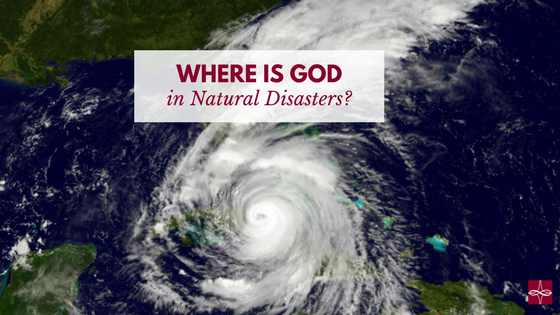

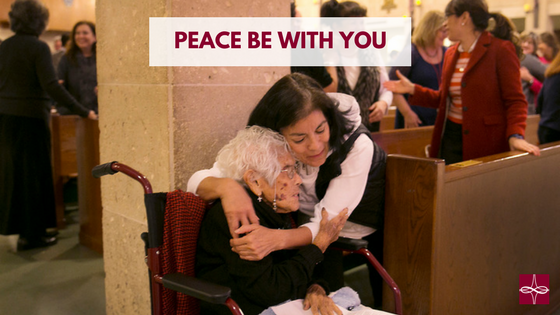

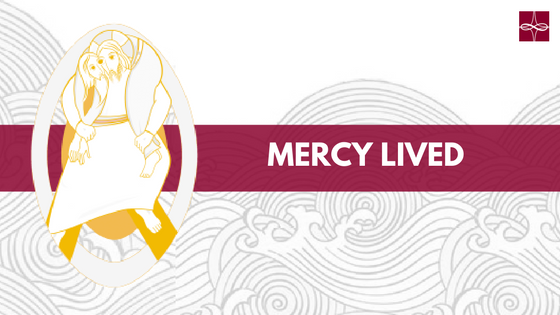
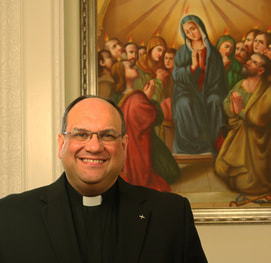
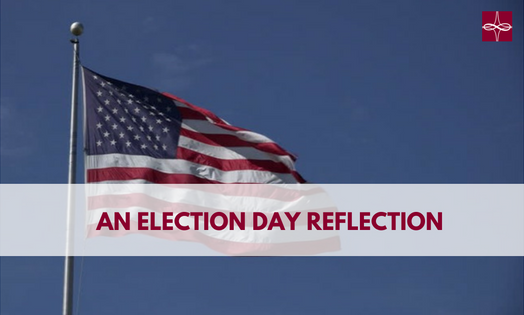
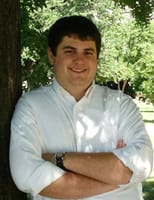
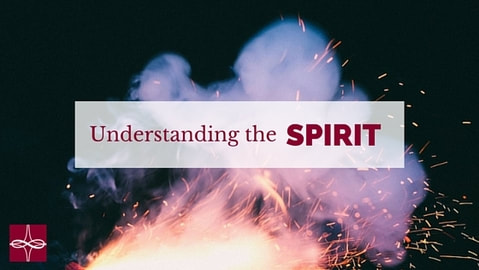

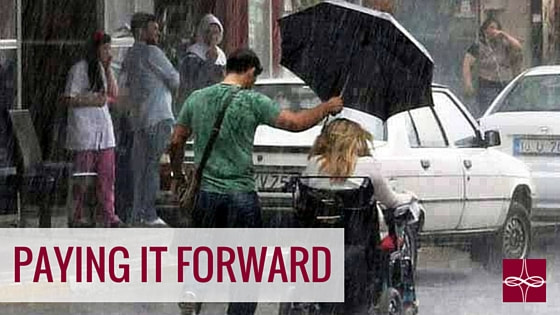



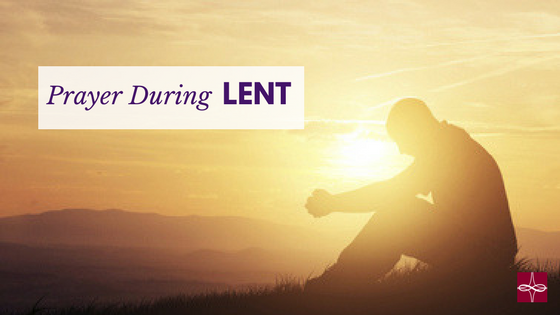
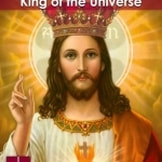


 RSS Feed
RSS Feed